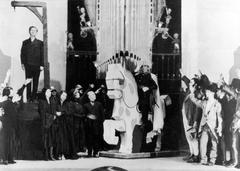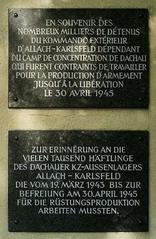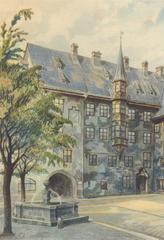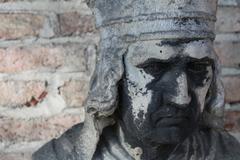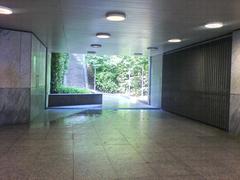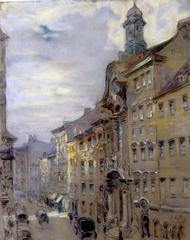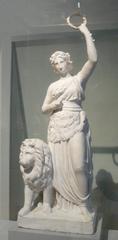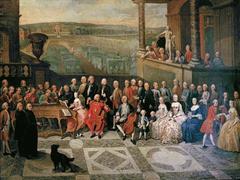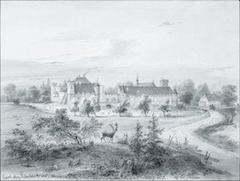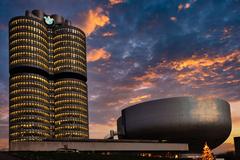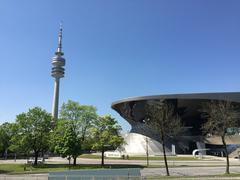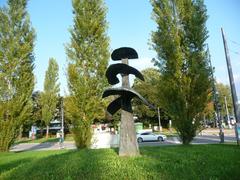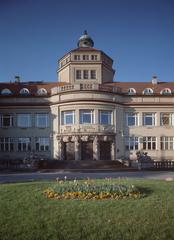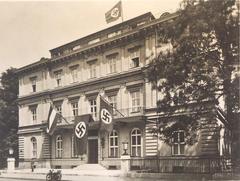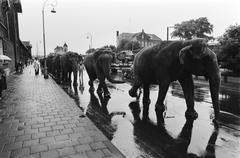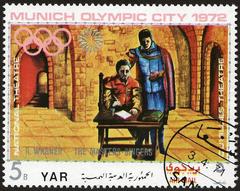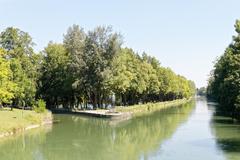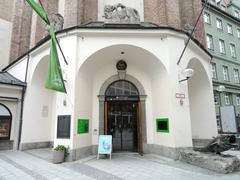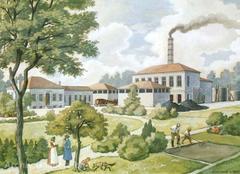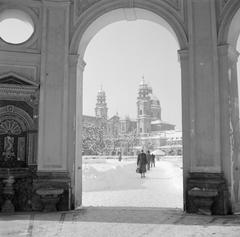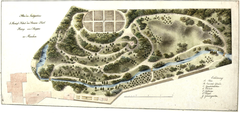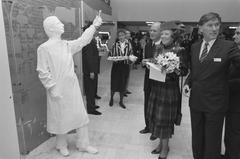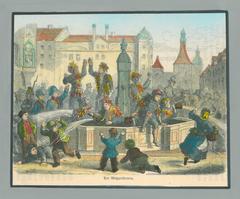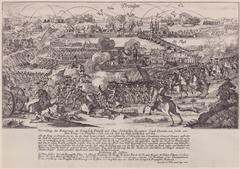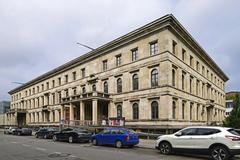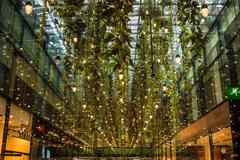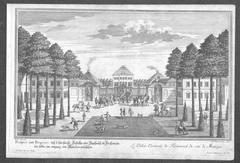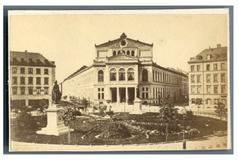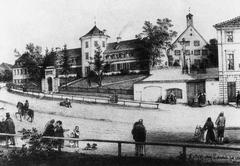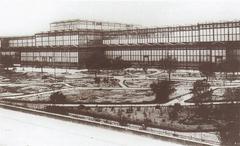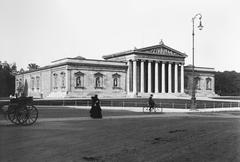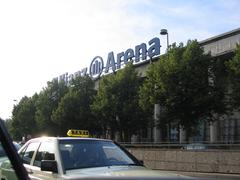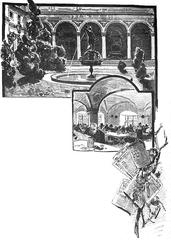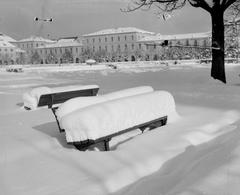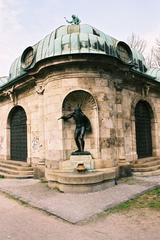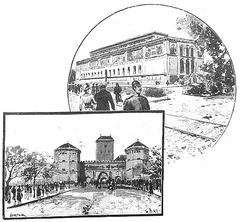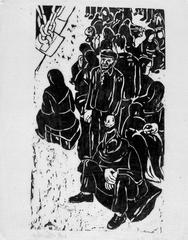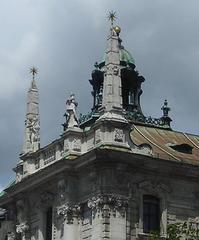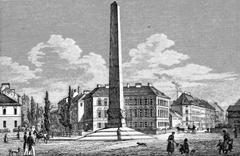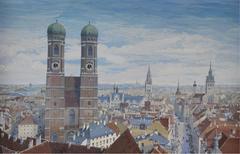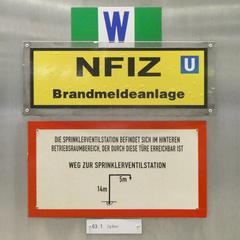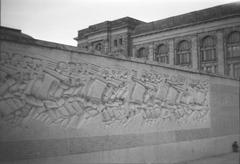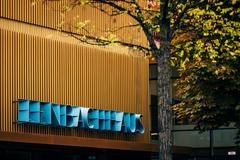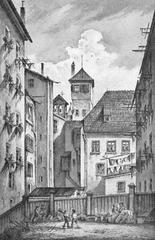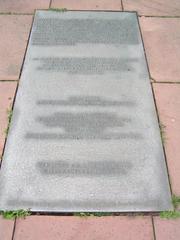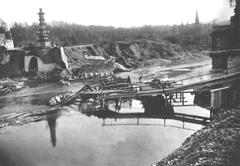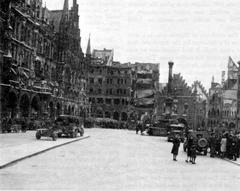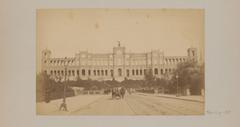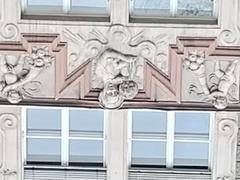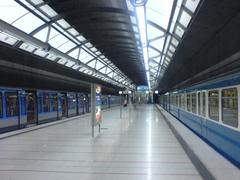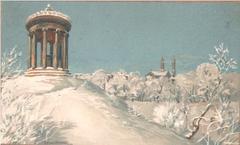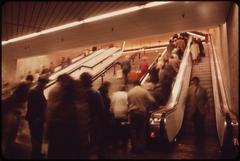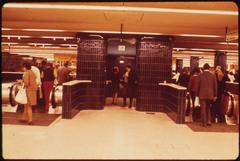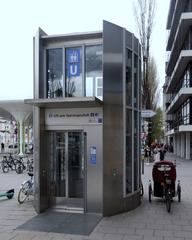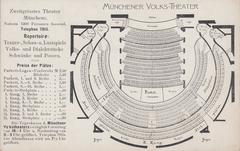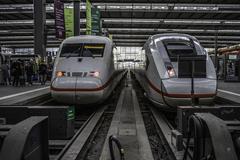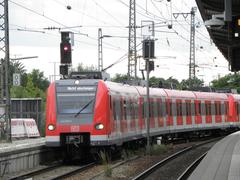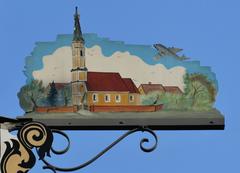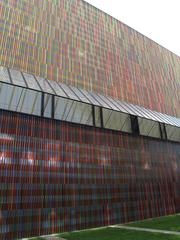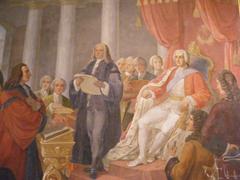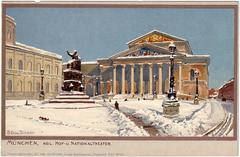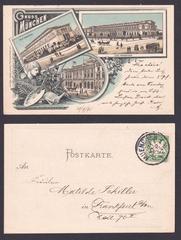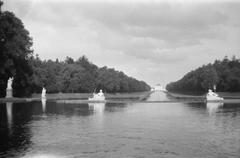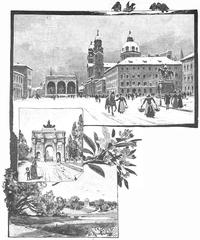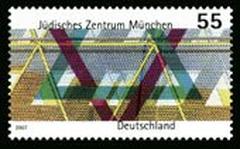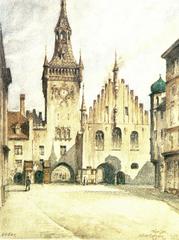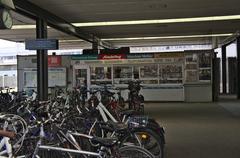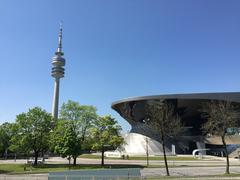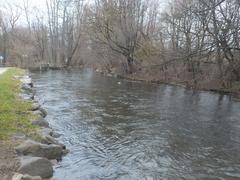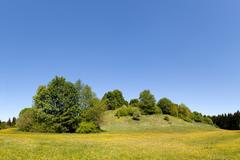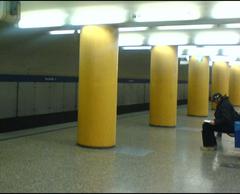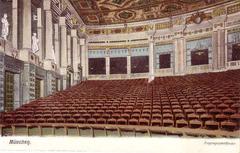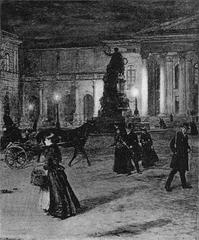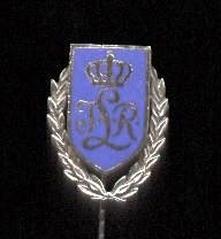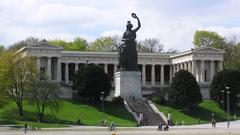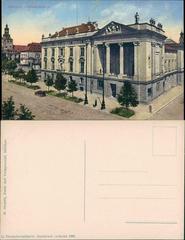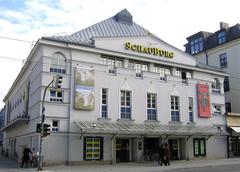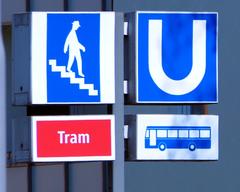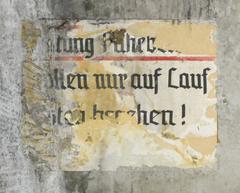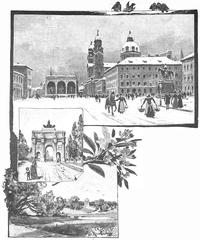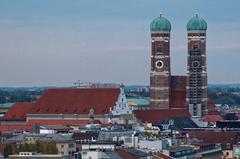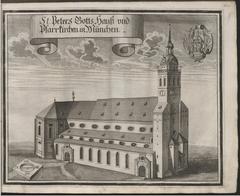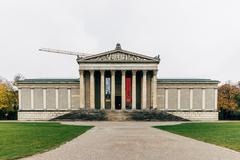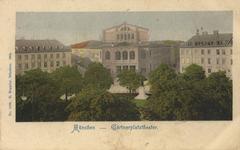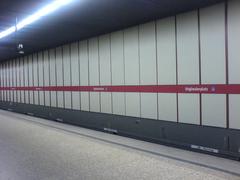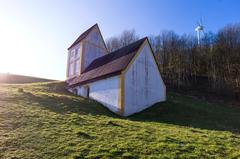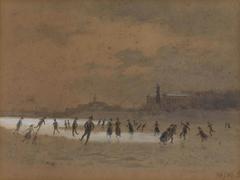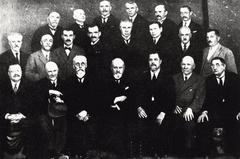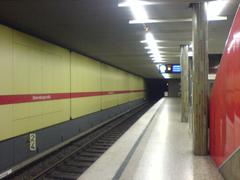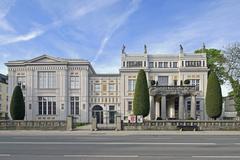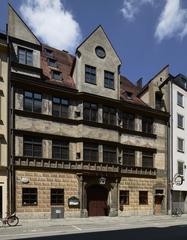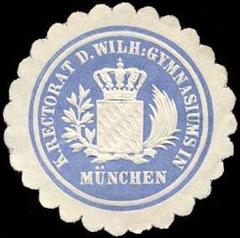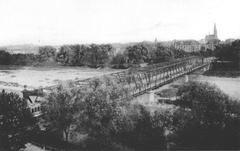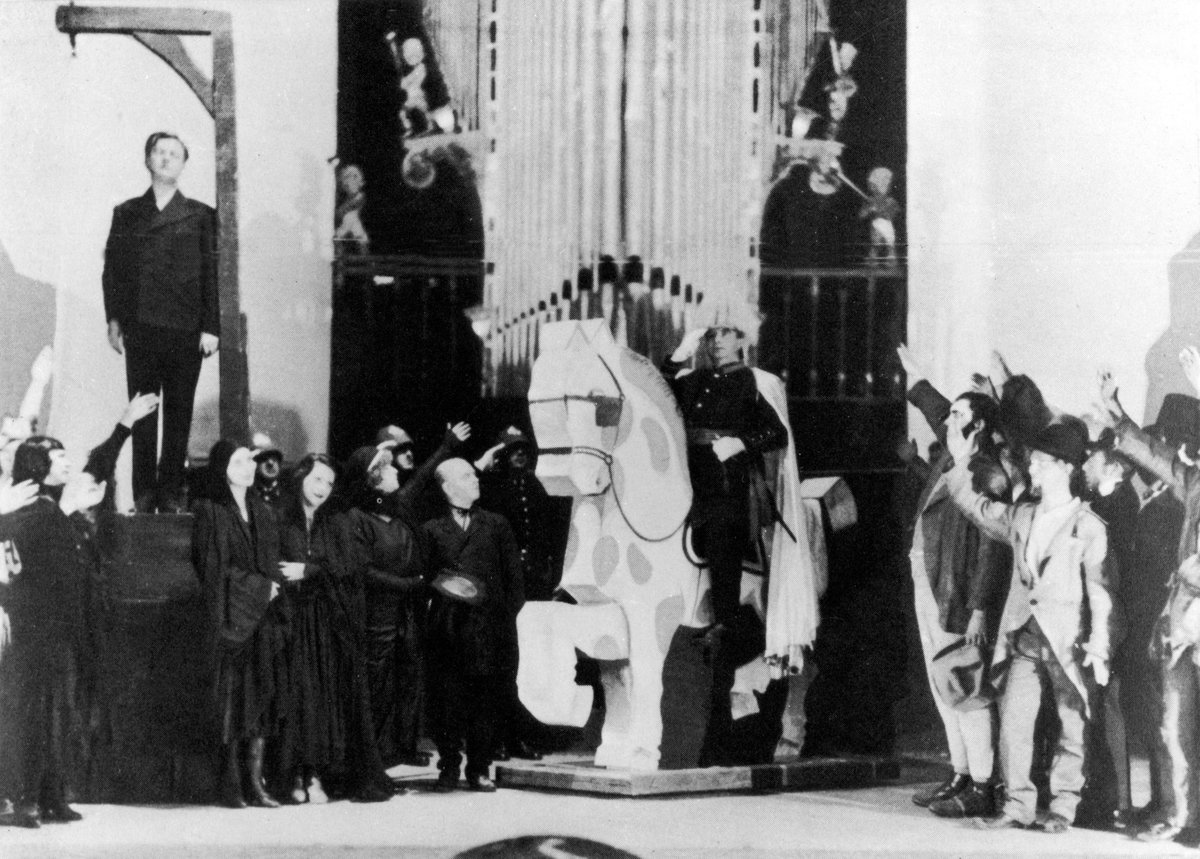
Munich Kammerspiele: Visiting Hours, Tickets & Ultimate Guide to Munich’s Historic Theatre
Date: 14/06/2025
Introduction: Munich Kammerspiele’s Legacy and Cultural Impact
The Munich Kammerspiele is a pillar of Munich’s cultural life and German theatre history, renowned for its innovative productions, groundbreaking artistic direction, and iconic Art Nouveau architecture. Since its founding in 1906 by Erich Ziegel, the Kammerspiele has fostered avant-garde performance, nurtured influential playwrights such as Bertolt Brecht, and served as a venue for creative resistance and social discourse. Nestled on Maximilianstraße, one of Munich’s grandest boulevards, the theatre stands as both a living monument to the evolution of German performing arts and a vibrant hub for contemporary cultural exploration (selection-magazin.de, munich.travel, muenchner-kammerspiele.de).
Table of Contents
- Introduction
- History & Artistic Evolution
- Visitor Information
- Unique Features & Special Events
- Nearby Attractions
- Frequently Asked Questions (FAQ)
- Visuals and Media Resources
- Conclusion and Call to Action
- References
History & Artistic Evolution
Origins and Early Development
Founded in 1906, Munich Kammerspiele began as a private stage dedicated to “chamber plays,” reflecting a European movement for more intimate, experimental theatre. By 1917, the theatre moved to its current Art Nouveau venue on Maximilianstraße, designed by Max Littmann. Early decades saw collaborations with leading artists and a reputation for progressive, contemporary works (selection-magazin.de).
Interwar Years: Innovation and Resistance
Under Otto Falckenberg’s directorship (1917–1944), the Kammerspiele became a crucible for new ideas, premiering works by Brecht, Wedekind, and Sternheim. The theatre’s cosmopolitan spirit attracted artists from across Europe and fostered a haven for creative freedom, even during the increasing censorship of the Nazi regime. Despite repression, the Kammerspiele continued to model artistic resistance and critical engagement (selection-magazin.de).
Postwar Renewal and International Recognition
After World War II, the Kammerspiele was instrumental in Munich’s cultural reconstruction, reopening swiftly and embracing new artistic forms. Its productions, often addressing urgent social and political themes, garnered international acclaim and established the theatre as a leader in contemporary performance (munich.travel).
Contemporary Mission and Community Engagement
Since 2020, under Barbara Mundel’s artistic direction, the Kammerspiele has prioritized inclusivity and diversity, engaging Munich’s multifaceted population through innovative programming and community initiatives like the “Habibi Kiosk.” The theatre continues to spotlight themes such as migration, identity, and sustainability, reinforcing its status as a cultural trailblazer (munich.travel).
Visitor Information
Location and Getting There
Address: Maximilianstraße 26-28, 80539 Munich, Germany
- Tram: “Kammerspiele” (lines 19, 21, N19) and “Maxmonument” (lines 16, 19, 21, N17, N19)
- U-Bahn/S-Bahn: “Lehel” (U4/U5), about a 7-minute walk; “Isartor” S-Bahn also nearby
- Bus: Multiple lines; trams are the most direct
- Parking: Limited accessible spaces on-site; public garages nearby (MVV Journey Planner)
Visiting Hours and Box Office
- Box Office: Monday–Saturday, 11:00–19:00
- Phone: +49 (0)89 233 966 000
- Email: [email protected]
- Official Website: muenchner-kammerspiele.de
Theatre doors typically open one hour before performances. Performance times usually start between 19:00 and 20:00; check the current program for details.
Ticketing and Discounts
- In Person: Box office during opening hours or one hour before showtime
- Online: Official ticket portal or München Ticket
- Standard Tickets: €20–€25, depending on production
- Discounts:
- Under 30: €10 per ticket (source)
- München-Pass holders: €8
- Theatre Day (monthly): €10 for all tickets, dates via newsletter
- Gift vouchers and subscription packages available
Accessibility
The Kammerspiele is committed to inclusivity (accessibility info):
- Step-free entrance with ramps
- Wheelchair spaces in the auditorium (balcony accessible by stairs only)
- Accessible restrooms
- Induction loop and assistive listening devices
- Accessible parking near the entrance
- Surtitles, sign language, and audio description for select performances
Facilities and Amenities
- Bar/Café: Drinks and snacks before shows and during intermission
- Cloakroom: Staffed service, usually free or small fee
- Foyer: Historic Art Nouveau setting for gathering and exhibitions
- Nearby Dining: Numerous restaurants and cafés on Maximilianstraße
Unique Features & Special Events
- Guided Tours: Explore theatre history, architecture, and backstage areas (book in advance via official website)
- Annual Kammerspiele-Straßenfest: Street festival with music, food, and workshops (Bored in Munich)
- Community Programs: Habibi Kiosk and panel discussions foster dialogue and inclusion
- Art Nouveau Flourishes: Architectural highlights throughout the exterior and interior (Schauspielhaus – Interior)
Nearby Attractions
- Maximilianstraße: Landmark boulevard, shopping, and architecture
- Residenz Munich: Former royal palace, short walk from the theatre
- Nationaltheater Munich: Home of Bavarian State Opera
- Englischer Garten: Expansive city park nearby
Frequently Asked Questions (FAQ)
Q: What are the Münchner Kammerspiele visiting hours?
A: Box office open Monday–Saturday, 11:00–19:00. Theatre opens one hour before performances.
Q: How can I buy tickets?
A: Online, by phone, or in person at the box office.
Q: Is the theatre accessible?
A: Yes, with step-free entrances, wheelchair seating, and accessibility services.
Q: Are there English-friendly performances?
A: Some productions feature English surtitles or materials; check program or contact box office.
Q: Can I park near the theatre?
A: Five accessible spaces on-site; public garages nearby, but spaces are limited.
Q: Are guided tours available?
A: Yes, periodically; book via official website.
Q: Is photography allowed?
A: No photography during performances; permitted in foyer and exterior areas.
Visuals and Media Resources

Alt tag: Münchner Kammerspiele theatre exterior view, Munich historical site
Virtual tour of Münchner Kammerspiele

Alt tag: Interior view of Münchner Kammerspiele auditorium
Conclusion and Call to Action
The Munich Kammerspiele stands at the crossroads of tradition and innovation—a destination for theatre lovers, history buffs, and culture seekers. Explore its celebrated history, experience cutting-edge performances, and immerse yourself in one of Munich’s most beautiful historic venues. Plan your visit by checking the current program, book your tickets in advance, and don’t miss the chance to engage with Munich’s artistic community.
For up-to-date information and exclusive content, follow the Kammerspiele on social media and download the Audiala app. Let the Munich Kammerspiele be your gateway to the city’s vibrant cultural heritage.
References
- Munich Kammerspiele: Visiting Hours, Tickets, History & Cultural Significance (selection-magazin.de)
- Munich Kammerspiele: Visiting Hours, Tickets, and Architectural Highlights (muenchner-kammerspiele.de)
- Münchner Kammerspiele Visiting Hours, Tickets, and Cultural Highlights (munich.travel)
- Münchner Kammerspiele Official Website (muenchner-kammerspiele.de)
